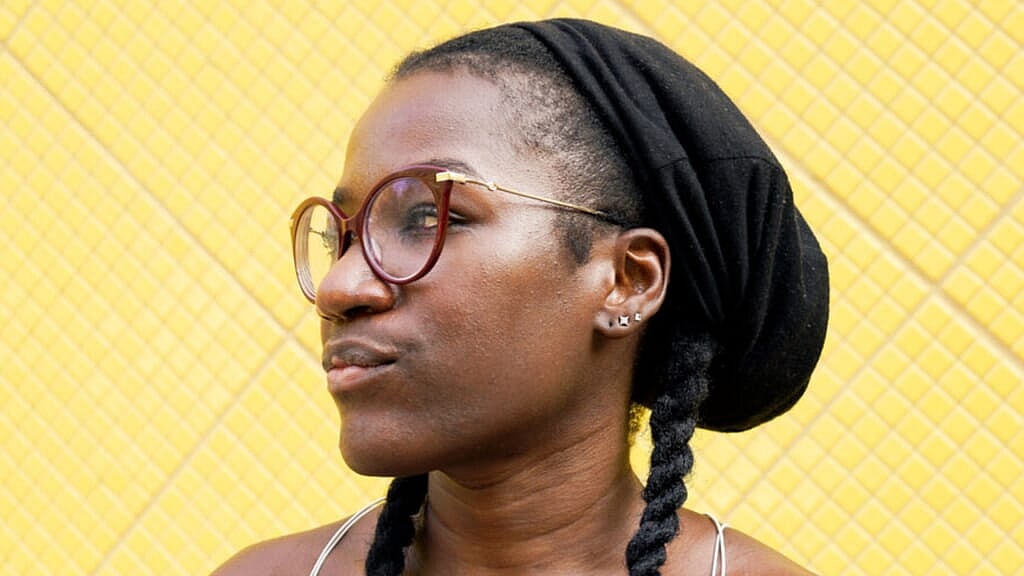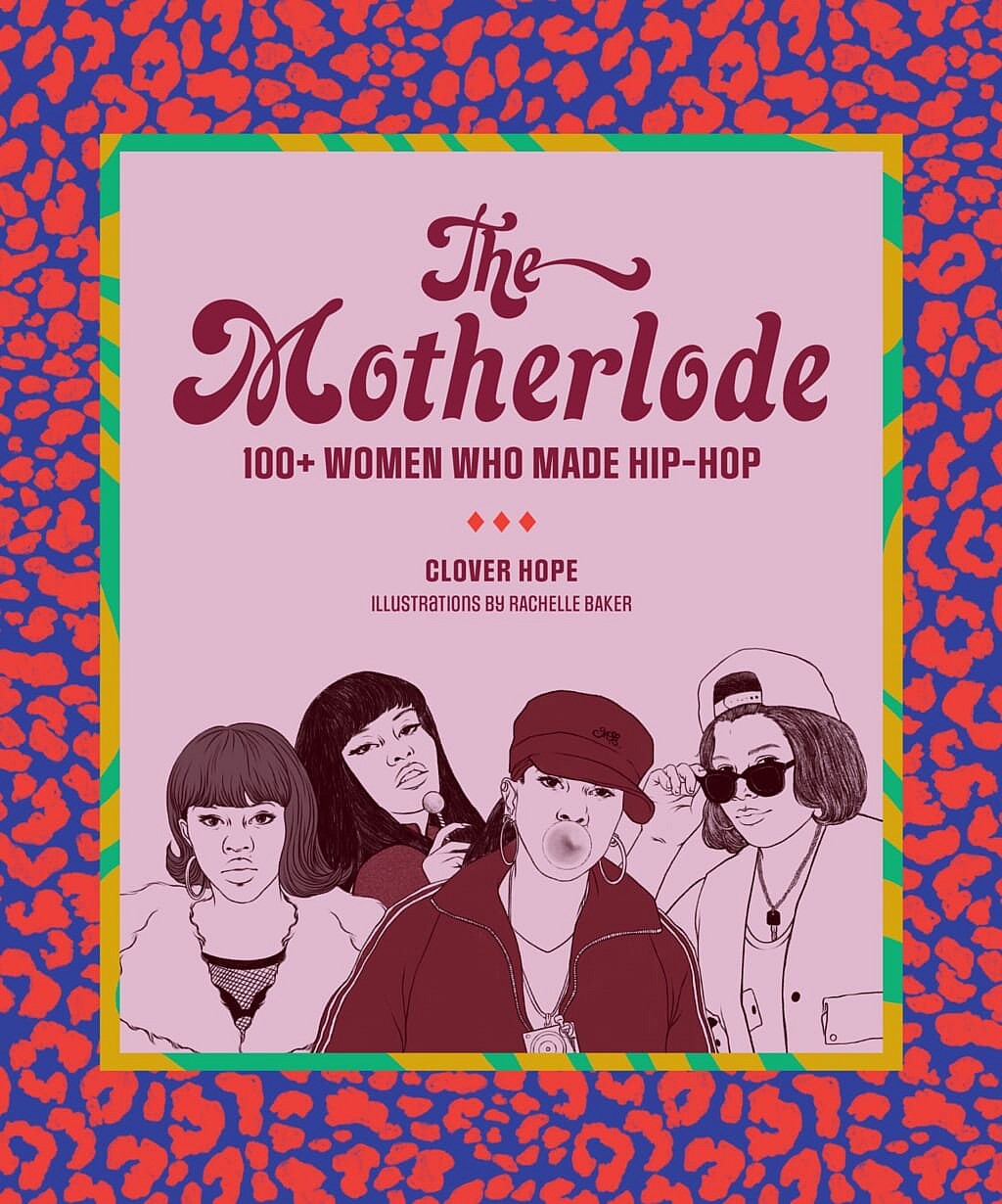Veteran music writer Clover Hope has created the consummate history of women in hip-hop with The Motherlode.
With her new book, subtitled 100+ Women Who Made Hip-Hop, Hope wanted to reach a wide range of rap fans. From those who know and treasure the culture to just the casual fan, she wrote a book that all of them could enjoy.

And, as a woman who loves hip-hop, she chose a topic near and dear to her heart: The Female Emcee.
Hip-hop is one of those things where there is always something to learn. Even the most dedicated hip-hop head will find that there’s plenty to discover in The Motherlode, which is a history of women in hip-hop packaged in an easy-to-read, fun book.
TheGrio talked to Hope about her passion for hip-hop culture, who would be on her Mt. Rushmore of women emcees, and what it was like working with Beyoncé.

TheGrio: So, let’s talk about the book, what motivated you to write it?
CLOVER HOPE: I was always into women who were rapping, from (Lil) Kim to Missy (Elliott) to Trina, to people who maybe only had a couple of songs. Every time I saw a woman on screen who was rapping and bringing that kind of energy, it was appealing to me.
When I would hear women rap, I felt like I was seeing my experience represented in this culture that I love in a way that maybe the guys weren’t representing because they can’t express the black female experience in America. So, I wanted to basically just capture that story of how I love hip-hop and then be able to tell it through the women who made the culture. I wanted to tell that story and wanted to in a way that I was presenting new information, giving some new history in a way.
It’s a great book, and one of the things I love most about it is how it almost feels interactive. What was your deliberation behind that?
Yeah, I wanted it to be fun and cool. I didn’t want people to be kind of reading or flipping through it and be turned away by it being maybe too textbook or something like that. Not to knock any of that, but I come from a magazine background, and what I love about magazines is that it offers information in a way that’s visually appetizing. It’s statically pleasing, and its design. It’s not just the words but also the style and design, and I wanted that to be a big part of it. So, having the illustrations and the chart, you know, the little sidebars, those are important to me to kind of capture just the fullness of the women also.
The timing is great also. We’re seeing this amazing surge in successful women rappers. What do you attribute to the rise of so many female rappers being successful right now? And did that play a factor in you wanting to write this book right now?
Honestly, it didn’t really play a factor. It wasn’t really a factor. The boom of women rappers has happened to coincide with the book release, but it also sort of makes sense because of the pace that we were going. Nicki (Minaj) had a really huge moment that opened the door for people. Just thinking about the timeline when she came out, the women who are rapping now; that was their inspiration.
She was their inspiration. She was the person that maybe inspired them to get into rapping or to wear colorful clothing. She kind of really ushered in this whole new generation. And so, I started kind of thinking about the book, what, two and a half years ago or so, with my editor; it really was about putting out the history that was missing in hip-hop. And there are so many books and all of these documentaries and things like that, that tells the story of hip hop. A lot of times, they just leave out all of the women that had an impact. It really was just about filling that space.
It’s almost infuriating, disappointing, when you see these lists come out with not one woman on it. It starts to feel intentional. It doesn’t make sense because women have been a part of this culture. This is our culture too. And I think people forget that and leave us out of it.
Yeah, well, I think that people create context based on how they grew up. If they grew up mostly on male music, they weren’t seeing examples of women being centered or in the forefront in a way that wasn’t like an accessory or just the hottest female rapper at the time. And their kind of current context is going to be skewed towards men. But if you kind of twist the history a little bit, and you realize how many women were making an impact, you start to kind of see how much history was skewed in certain ways.
One of the things I wrote in the book is that history is what a dominant group decides … A lot of time, that’s what happens. Whether it’s like white men telling the history of America, it comes out a certain way. And now, when you get Black people and Black creators who are able to say, ‘Well, no, that’s not the history of America; here’s how things happen from our point of view,’ that helps to round out the point of view. I think that’s what’s happening.
They — Black men — have this version of history that was told, and it’s really, really hard to get out of that. If you’re like, ‘my top three rappers are Nas, Biggie, 2Pac,‘ it’s hard to grow up on having women center on these types of lists. I do challenge people to kind of think about it, though, in a way that doesn’t feel forced.
Now, when they are writing about the last five years, if you do a list of the hottest rappers, and it doesn’t have Cardi or Megan Thee Stallion on it, that’s just bulls**t.
So, who’s on your top five?
It’s hard for me to do a top five because it changes almost day to day. But, I chose Kim, Nicki, Missy and (Queen) Latifah for the cover, and I would add Lauryn (Hill) to that.
You co-wrote Black is King. And I have to ask: What is it like working with Beyoncé?
Out of anything, I can say about working with Beyonce is what people would expect. (She has a great) work ethic, and it was just a really great collaborative experience. I think anyone who works on any project with her just takes away the spirit of collaboration. That’s what I’ve taken away from that. And I hope to just carry it over into whatever other production and storytelling work that I do.
Have you subscribed to theGrio’s “Dear Culture” podcast? Download our newest episodes now!
TheGrio is now on Apple TV, Amazon Fire and Roku. Download theGrio.com today!

